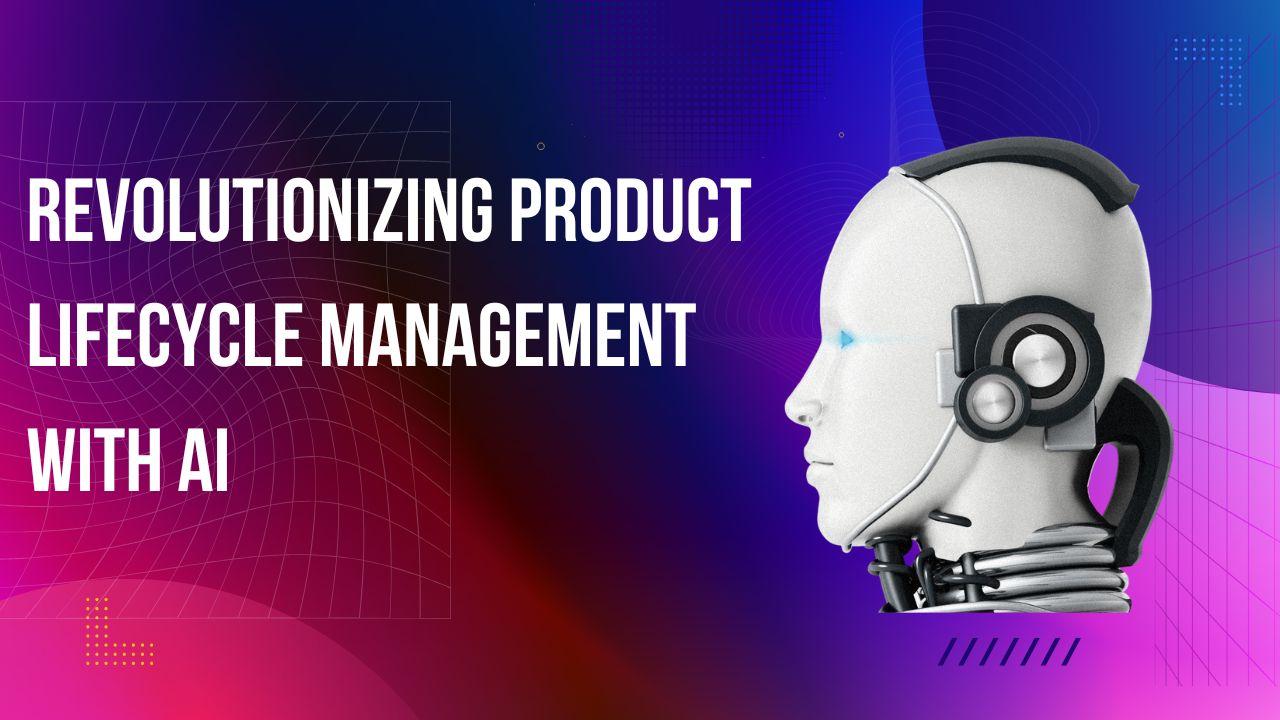The Dawn of a New Era in PLM Transformation of Artificial Intelligence (AI) is revolutionizing industries worldwide, and Product Lifecycle Management (PLM) is no exception. Krishna Jayant Baride, an expert in AI-driven business transformations, explores how AI and Generative AI are reshaping PLM processes to improve efficiency, reduce bottlenecks, and enhance product quality. This article delves into the challenges of traditional PLM and the AI-driven innovations that are redefining the future of product development. From automated design optimization to predictive maintenance and intelligent supply chain management, AI technologies are revolutionizing how organizations approach product lifecycle management and drive sustainable growth.
Understanding the Challenges in PLM
PLM transformation is a complex process that spans multiple departments and requires coordination across various stages of product development. Some of the key challenges include:
- Mapping Existing Processes: Organizations struggle to understand their intricate workflows, which have often evolved organically over years.
- Identifying Inefficiencies: Redundant steps, bottlenecks, and outdated procedures slow down product development.
- Designing Future-State Workflows: Companies need to envision efficient workflows that integrate seamlessly with new technologies.
- Creating Standard Operating Procedures (SOPs) and Training Materials: Ensuring employees can effectively use new PLM processes is critical for success.
AI has emerged as a game-changing solution to these challenges, offering capabilities that go beyond traditional transformation approaches.
AI-Powered Process Optimization
AI-driven solutions are transforming the way organizations approach PLM.
- Process Learning and Mapping: AI-powered process mapping tools analyze historical data to create a clear picture of existing workflows. These tools provide insights into inefficiencies and suggest optimized alternatives.
- Intelligent Inefficiency Detection: Machine learning algorithms analyze data to identify redundancies and recommend streamlining efforts.
- Generative AI for Workflow Design: AI models can simulate and propose optimized workflows tailored to business needs.
- Automated SOP and Training Material Creation: Natural Language Processing (NLP) enables AI to generate comprehensive documentation, ensuring smooth adoption of new processes.
Enhancing Product Launches and Change Management
AI is accelerating product development cycles by reducing manual intervention and automating decision-making processes. Some of the key benefits include:
- Faster Product Development: AI-driven insights help teams make quicker and more informed decisions.
- Improved Change Management: AI simulations predict the impact of changes, minimizing risks before implementation.
- Real-time Monitoring and Quality Control: AI enables continuous monitoring of processes to detect potential issues and recommend corrective actions proactively.
Continuous Improvement through AI
AI doesn’t just optimize PLM once; it ensures continuous enhancement. By integrating AI-driven analytics, companies can:
- Monitor Processes in Real Time: AI detects deviations from expected performance and escalates issues automatically.
- Address Bottlenecks Efficiently: AI-powered analytics pinpoint process inefficiencies and recommend solutions.
- Iterate for Better Quality: AI learns from past product launches, improving future iterations for better market performance.
Overcoming Barriers to AI Adoption Despite its transformative potential, the adoption of AI in PLM is not without challenges. Organizations must navigate:
- Data Quality Issues: AI relies on structured and high-quality data, which many companies struggle to maintain.
- Skills Gap: Implementing AI in PLM requires professionals with expertise in both AI and product management.
- Ethical Considerations: AI-driven decisions must align with ethical guidelines and regulatory frameworks to ensure responsible implementation.
- Change Management: Organizations must develop comprehensive strategies to manage cultural resistance and ensure smooth transition to AI-enabled processes.
- Infrastructure Requirements: Substantial investment in technological infrastructure and security measures is essential for successful AI integration.
The Future of AI in PLM
As AI continues to evolve, its role in PLM will expand. Emerging technologies such as digital twins, advanced machine learning models, and enhanced NLP capabilities will further refine AI’s ability to optimize PLM processes. These advancements will enable organizations to enhance product development efficiency, reduce costs, and stay ahead in an increasingly competitive market. Additionally, AI-powered predictive analytics and automated decision-making systems will revolutionize lifecycle management, enabling real-time adjustments and proactive maintenance strategies.
In conclusion,AI-driven PLM transformation is no longer a futuristic concept—it is happening now. By leveraging AI and Generative AI, companies can streamline workflows, improve efficiency, and ensure continuous product development improvements. Krishna Jayant Baride highlights the immense potential AI holds in redefining PLM, emphasizing that organizations that strategically embrace AI will lead the way in product innovation and business growth.





























